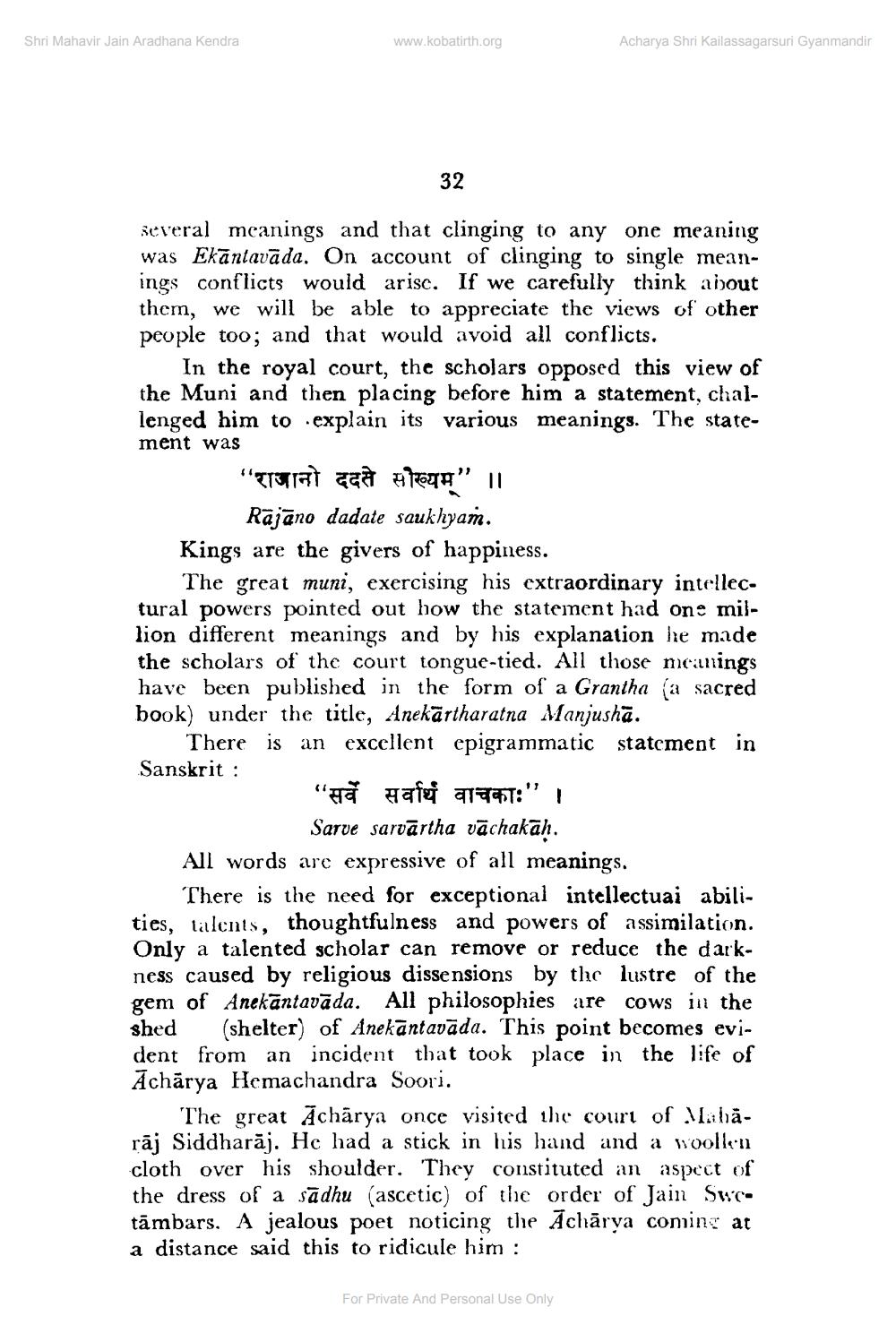________________
Shri Mahavir Jain Aradhana Kendra
www.kobatirth.org
32
Acharya Shri Kailassagarsuri Gyanmandir
several meanings and that clinging to any one meaning was Ekantavada. On account of clinging to single meanings conflicts would arise. If we carefully think about them, we will be able to appreciate the views of other people too; and that would avoid all conflicts.
In the royal court, the scholars opposed this view of the Muni and then placing before him a statement, challenged him to explain its various meanings. The state
ment was
"राजानो ददते सौख्यम् " ||
Rajano dadate saukhyam.
Kings are the givers of happiness.
The great muni, exercising his extraordinary intellectural powers pointed out how the statement had one million different meanings and by his explanation he made the scholars of the court tongue-tied. All those meanings have been published in the form of a Grantha (a sacred book) under the title, Anekārtharatna Manjushā.
There is an excellent epigrammatic statement in Sanskrit:
97
" सर्वे सर्वार्थं वाचकाः' I
Sarve sarvartha vāchakāḥ.
All words are expressive of all meanings.
There is the need for exceptional intellectuai abilities, talents, thoughtfulness and powers of assimilation. Only a talented scholar can remove or reduce the darkness caused by religious dissensions by the lustre of the gem of Anekantavāda. All philosophies are cows in the shed (shelter) of Anekāntavāda. This point becomes evident from an incident that took place in the life of Acharya Hemachandra Soori.
The great Acharya once visited the court of Maharāj Siddharaj. He had a stick in his hand and a woollen cloth over his shoulder. They constituted an aspect of the dress of a sadhu (ascetic) of the order of Jain Swetāmbars. A jealous poet noticing the Acharya coming at a distance said this to ridicule him:
For Private And Personal Use Only




